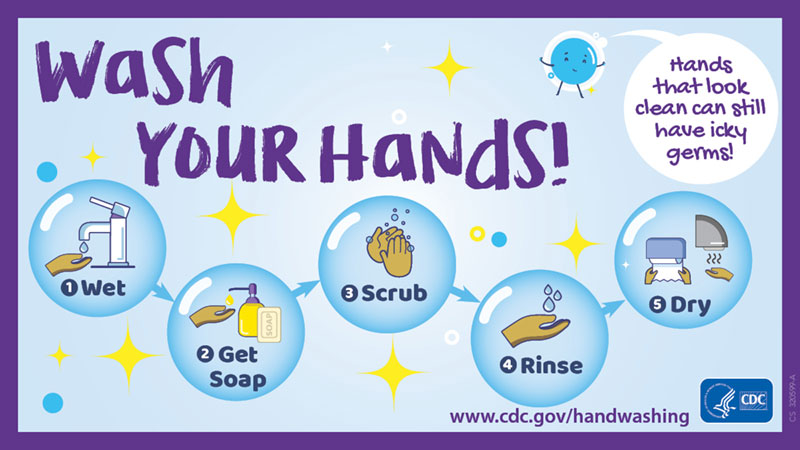Posted by Divya Sathyanarayanan
COVID-19 and common cold cause many similar symptoms and it can be difficult to tell the difference based on symptoms alone. Dr. Thomas Horowitz, Family Medicine Specialist at CHA HPMC, shares the difference and preventive measures.
Symptoms of Common Cold
The common “cold” can be caused by several respiratory viruses: Adenovirus, Enterovirus, Rhinovirus, and even a Coronavirus. While some viruses thrive in the winter, others do better in the warm summer months. Enterovirus seems to be the most prevalent virus causing the summer cold, as this virus thrives in warmer weather. All these viruses are upper respiratory infectors and affect the mucous membranes. Some of the symptoms include running nose, sore throat, fever, headache, sinus inflammation, and irritable larynx.
Symptoms of COVID-19
Coronavirus (COVID-19) also causes upper respiratory symptoms. Therefore, in case of mild symptoms, it may be difficult to differentiate between the two. Some of the additional symptoms caused by COVID-19, which are not associated with the common cold, include loss of taste and/or smell, shortness of breath, muscle aches, high fevers, and inflammation of other organs such as the heart, lungs, kidneys, and even eyes.
Difference between Common Cold and COVID-19 Symptoms
Colds tend to incubate a little faster (2 days) as compared to COVID-19 (3-5 days). Also, COVID-19 impacts more organs of the body. Therefore, if you have shortness of breath, muscle aches, or encounter any symptoms that are different from the common cold symptoms you’ve previously experienced, you must get tested for COVID-19.
If you have any of the symptoms of COVID-19, what should you do?
It is important to contact your primary care doctor. Also, it is never wrong to get tested. Apart from testing, you can also get a Pulse Oximeter for less than $20 to monitor the blood oxygen saturation. A drop in your oxygen level can indicate that you need urgent or emergent care.
Preventive Measures for COVID-19
- Vaccination against COVID-19 has proven to be the most effective means of preventing infection. So, we urge everyone to get vaccinated to protect themselves and their loved ones.
- Wear a cloth face covering or face mask—that fits well—whenever you are in a crowded place or in the same room with other people. Avoid touching your face, eyes, nose or mouth.
- Practice proper hand hygiene and wash your hands frequently throughout the day. Use alcohol-based hand sanitizers when water and soap are not available. Wash your hands with soap and water for at least 20 seconds before eating or whenever you cough, sneeze, or touch a public surface.
- Practice social distancing; maintain a separation of at least six feet from others.

 ENGLISH
ENGLISH KOREAN
KOREAN Spanish
Spanish RUSSIAN
RUSSIAN Armenian
Armenian FILIPINO
FILIPINO Chinese (Simplified)
Chinese (Simplified) Chinese (Traditional)
Chinese (Traditional)

최신댓글